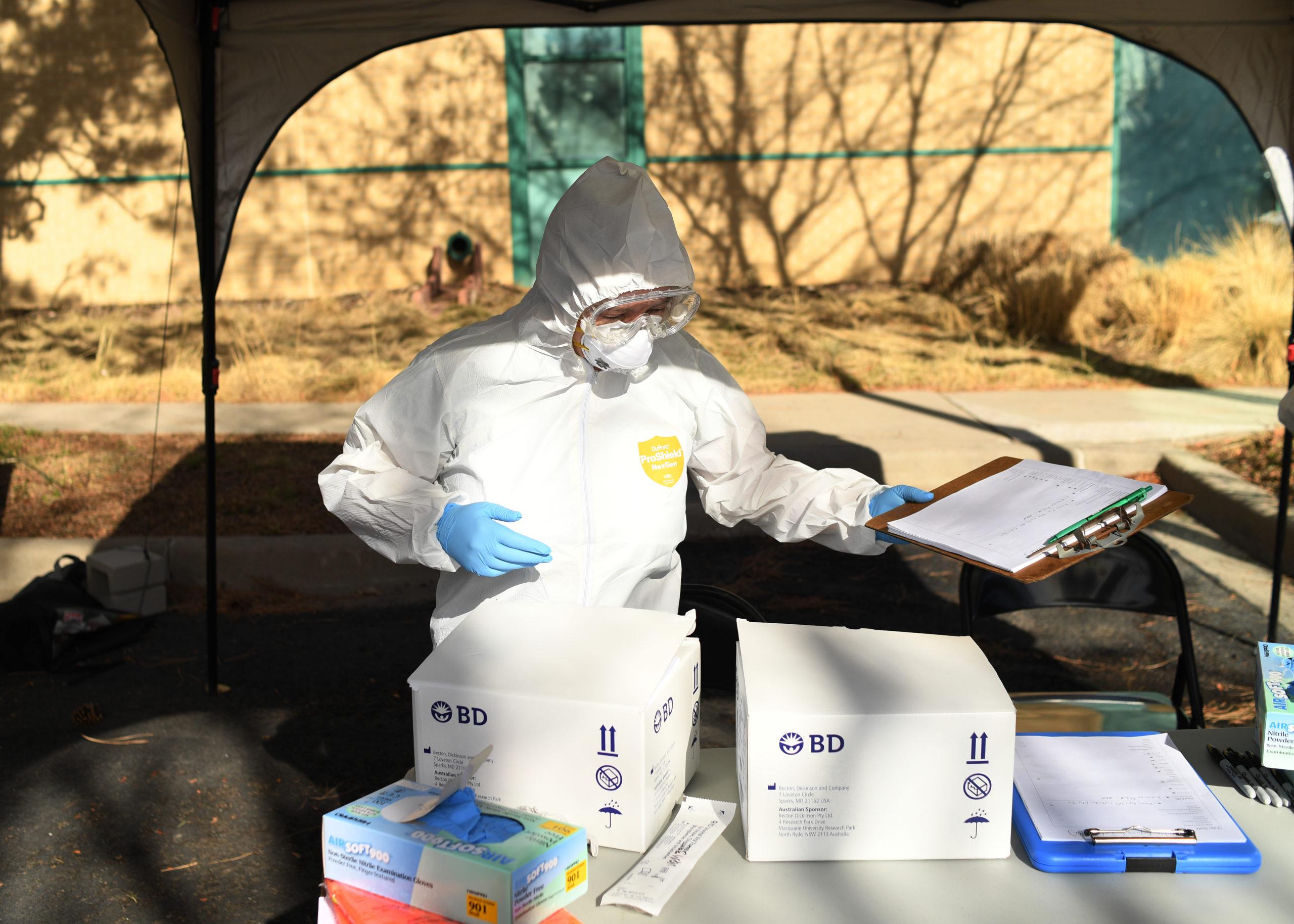Isabel Guzman's beautifully told story of a nurse who tries to maintain normalcy while grappling with death feels so familiar in this moment, even if you haven't been treated in a hospital for the novel coronavirus. Guzman's intimate portrait won first place in our coronavirus flash-fiction contest. "The Toilet Paper Baron of Metro Denver" won third, and "Live AC" won second.
Learn more about Guzman and what inspired her at the end of the story.
Radioactive
By Isabel Guzman
She stomps in a muddy puddle before entering, to feel the water and watch the brown droplets running down her boots. She is thankful that even in beautiful 70 degree weather, there are still piles of snow, slowly melting away. She thinks of the time at Estes Park and how sunny it was. She was amazed by the coexistence of snow and sun.
While she walks, she winces as the spot in the middle of her back tenses. Must be the couch she has been sleeping on for the past couple of months, she thinks, not that she has been sleeping much. Her days are indistinguishable, but she is certain they last forever.
Her sleeplessness is horrifically noticeable when she sees herself in the reflection of the automatic doorway of the hospital. Even with the fluorescent glow of the Saint Joseph Hospital sign reflected on her face, her sunken eyes are her most prominent feature. She thinks, "Shit, I look bad."
An aroma of something she can't identify suddenly hits her. Is it foul or reasonable? A mixture of sweat -- the stress-induced kind -- bleach and plastic.
Reasonably foul, she decides.
Inside, she is welcomed by a cacophony of ringing phones, the crinkling of PPE packages, and rubber shoes on tiles. She makes her way to her assigned station, avoiding looking at the clock. Time doesn't help here, she knows.
As she slides on her gloves and gown, the head doctor calls her over to the usual meeting spot, which is a simple corner of space.
"Revised protocol?" she asks, certain of his response. The team meets every few hours to discuss the ever-changing virus.
He starts to chuckles, but it seems to have gotten caught in his throat. Or maybe his face mask mumbled it. "Well, not yet, but I wanted to tell you..."
Uncomfortable with just a moment of silence, she has to say something to fill the air.
"Yeah? I'm listening."
"We've been instructed to encourage all doctors and nurses to evaluate the risks we are putting ourselves in, sit down with your families and, essentially, draw up a will."
She's become accustomed to the professional tone of his voice, but somehow it sounds different this time.
"Oh..."
"I know that's a lot to hear, but we all must have a mutual understanding of how close we are to drowning here. We are the ones who save everyone, no one saves us. You understand."
On her visit with a non-infected patient, she knows she must discuss the possibility of their last days, which have arrived sooner than they thought. This patient has underlying respiratory issues, including heart disease. He was a smoker long ago, when smoking was considered a harmless hobby, a getaway from the kids and wife, he once told her. She enters the room with a clipboard of his medical history and a pen. Upon the sight of him, she stores her pen away. She does not want to document what their conversation will entail. She does not want to remember another moment that will keep her up at night. She feels an urge to hold her patient's hand, but she knows that is risky. To feel the warmth of another human is risky.
She eases her shoulders when he gives her an understanding smile. "I have lived enough, I have seen enough." She checks his vitals before leaving and washes her hands thoroughly in the tiny sink next to his bed. She thinks, We will have an extra bed, at least. Then, a wave of guilt washes over her.
"How are you feeling apart from the virus?" he asks her as she dries her hands. She can feel her heart race.
"Truthfully, this virus is everything."
It is nearly midnight when she kicks off her boots and is welcomed home by Bean's meows. What a lucky cat, to sit at home and do nothing all day, she thinks. She hops into the steaming hot shower, scrubbing away whatever radioactive molecules have strapped themselves to her throughout the day.
She sits at her two-person dining table, with Bean sleeping at her feet. Am I supposed to leave everything to Bean? she wonders, then laughs. When was the last time she laughed?
She leaves her furniture to her father, who is always recycling old furniture to customize his own. Her cousin has always adored her collection of glass menageries, so she will leave those to him. She has to remember to print out a maintenance guide for him, since he will almost surely try to put them in direct sunlight and not dust them. The image of her figurines collecting dust in a 19-year-old's dorm room sends shivers down her spine. She laughs again. She knows she still must comb through her life insurance, credit cards and outstanding debts. I am not ready to do that, I need more time, she thinks. Tears begin to fall, but she knows she must keep writing. Time does not wait for me, time doesn't help here, she knows.
She decides to leave her skiing pass to her sister, who has never been skiing but will have to go to honor her memory. She will appreciate the coexisting of the sun and snow, too.
What inspired you to write this story?













